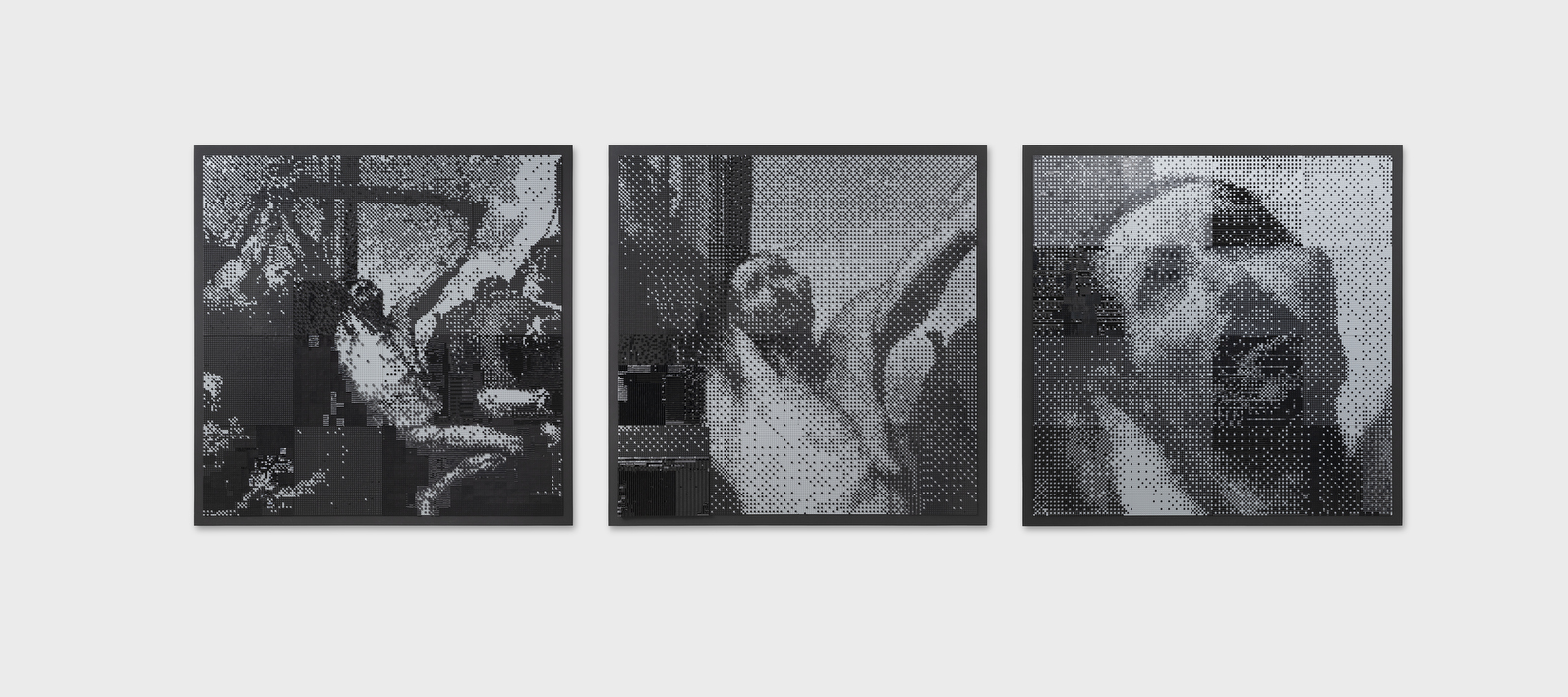
Martyrdom
Legos on wooden board
165 x 165 cm each panel
64,9 x 64,9 in each panel
Legos on wooden board
165 x 165 cm each panel
64,9 x 64,9 in each panel
Colisão Conluio Colisão solo show
LURIXS: Arte Contemporânea
Rio de Janeiro, 2018
Nara Roesler Gallery
São Paulo, 2018
LURIXS: Arte Contemporânea
Rio de Janeiro, 2018
Nara Roesler Gallery
São Paulo, 2018
In Martyrdom, Gustavo Prado draws from his interest in revisiting
key moments and references in art history from a contemporary perspective.
Here, he appropriates Catholic iconography and liturgy by utilizing José de Ribera’s classic painting The Martyrdom of Saint Philip (1629). Ribera,
a 17th-century Spanish painter who worked in Italy, followed in Caravaggio’s footsteps. The Christian martyrdom
scene (and consequently the martyr) is intensified by the dramatic and
theatrical qualities of Baroque painting, which, in Prado’s interpretation, gains an additional layer by being treated in an
almost cinematic way. Enlarged to monumental proportions, the same scene is
presented across three different moments, with each focusing more closely on
the figure and suffering of Saint Philip.
Ribera’s mundane portrayal of the saint, who appears as an ordinary person, is emphasized by this zoom effect created in Prado’s triptych, increasingly focusing on the central figure and his suffering. The work can be displayed horizontally or vertically, and is instinctively read following Western conventions: left to right, top to bottom. However, through the movement of the viewer within the exhibition space, or by their own choice, alternative readings are possible (bottom to top, right to left), introducing new interpretations to the sequence. The familiarity of the image is enhanced by Prado’s reconstruction of sacred iconography using Lego pieces. The constructive and playful aspects of the work, alongside its references to Baroque and Catholicism, serve as tools for Prado’s exploration of Brazilian art history and production, as well as his interest in the possibilities of constructing and interpreting images.
Ribera’s mundane portrayal of the saint, who appears as an ordinary person, is emphasized by this zoom effect created in Prado’s triptych, increasingly focusing on the central figure and his suffering. The work can be displayed horizontally or vertically, and is instinctively read following Western conventions: left to right, top to bottom. However, through the movement of the viewer within the exhibition space, or by their own choice, alternative readings are possible (bottom to top, right to left), introducing new interpretations to the sequence. The familiarity of the image is enhanced by Prado’s reconstruction of sacred iconography using Lego pieces. The constructive and playful aspects of the work, alongside its references to Baroque and Catholicism, serve as tools for Prado’s exploration of Brazilian art history and production, as well as his interest in the possibilities of constructing and interpreting images.

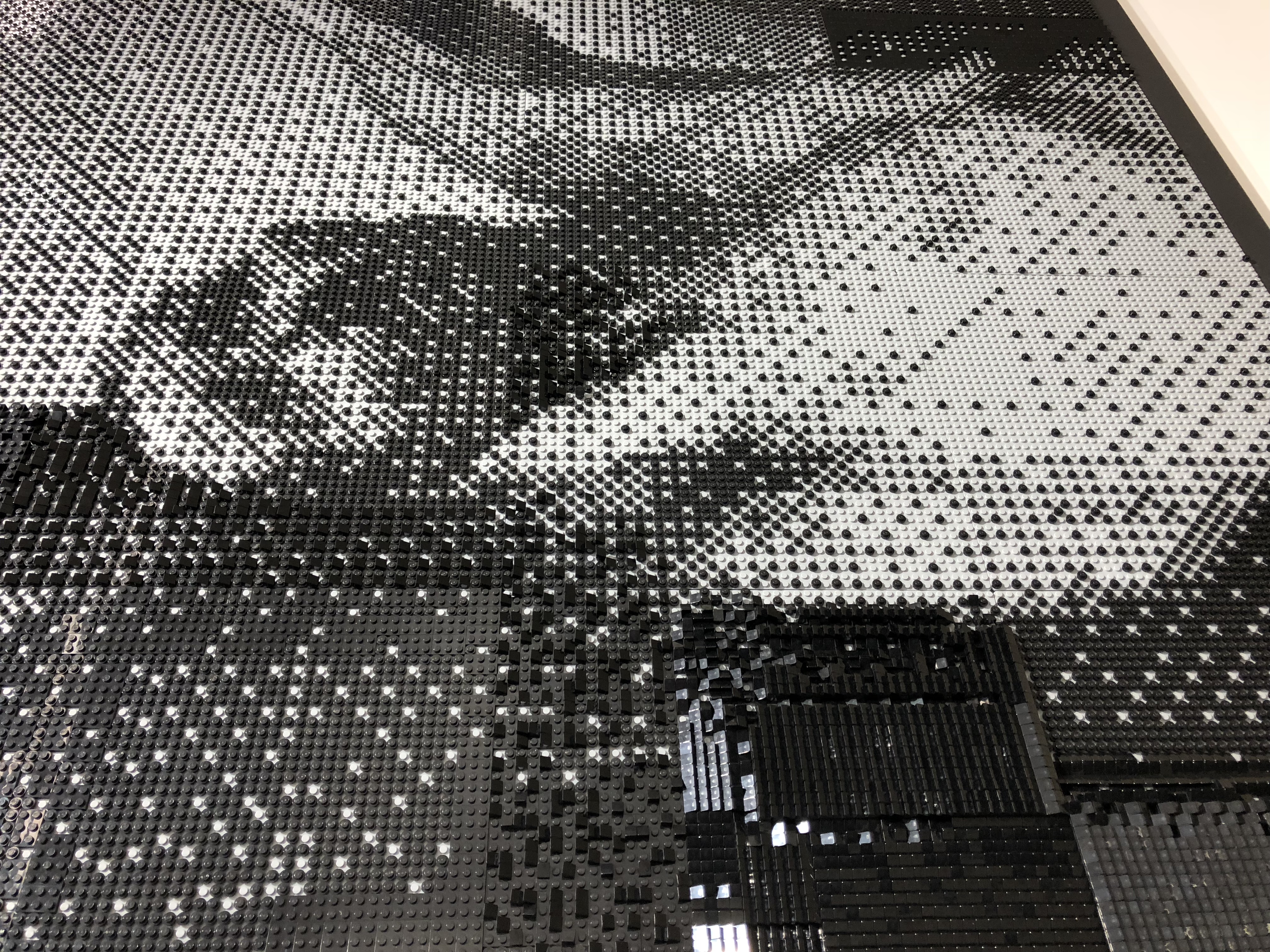
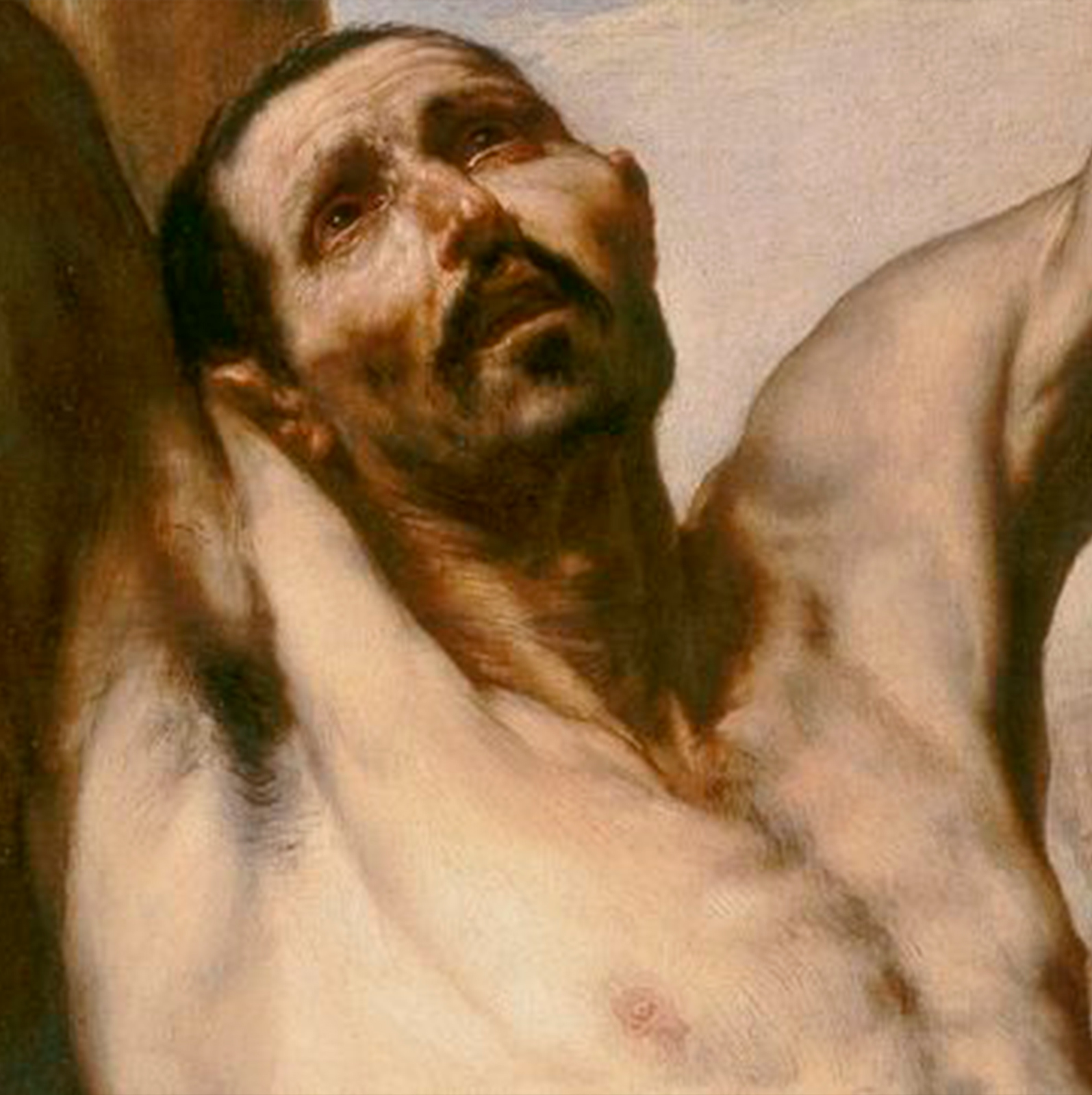
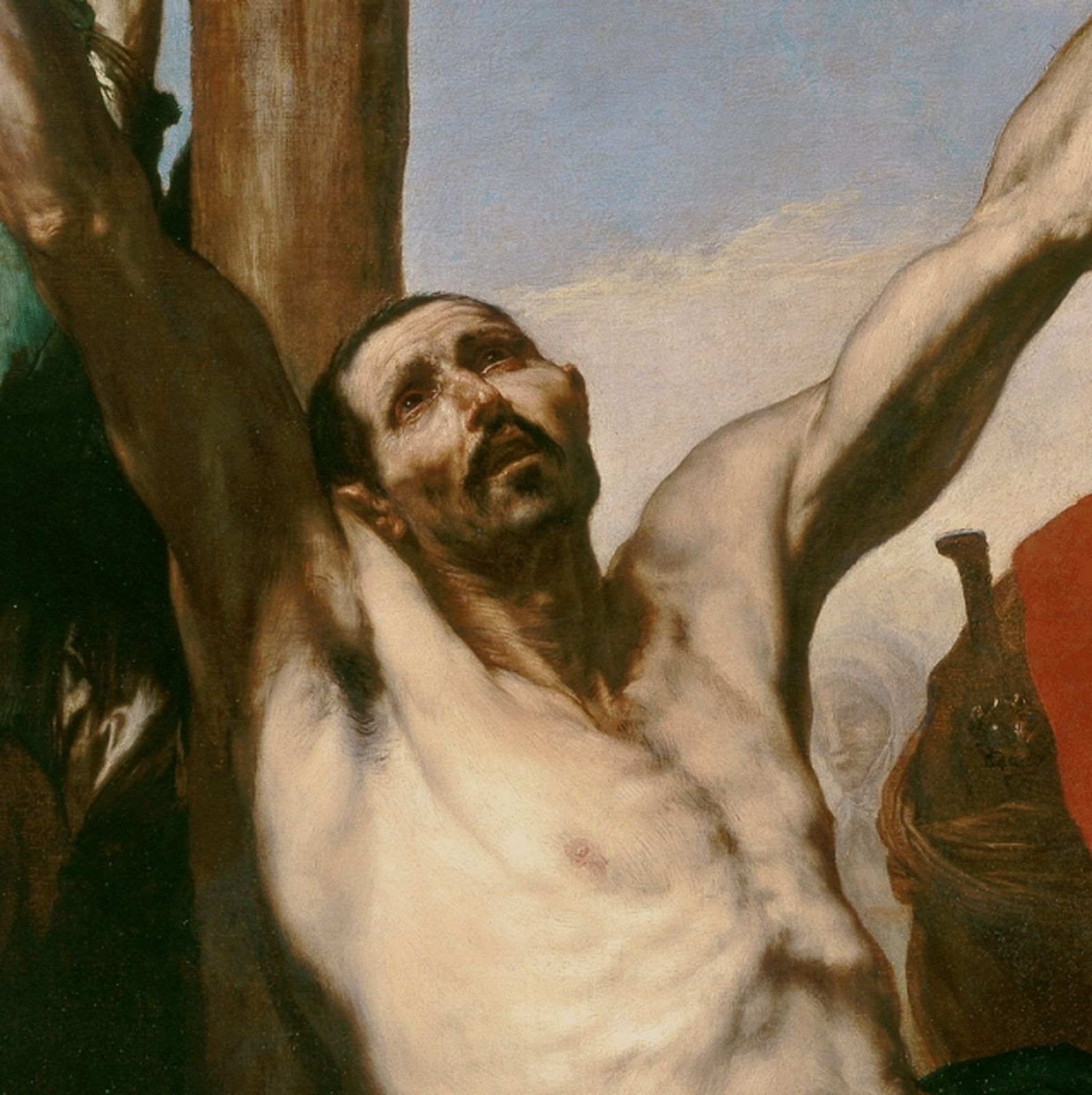

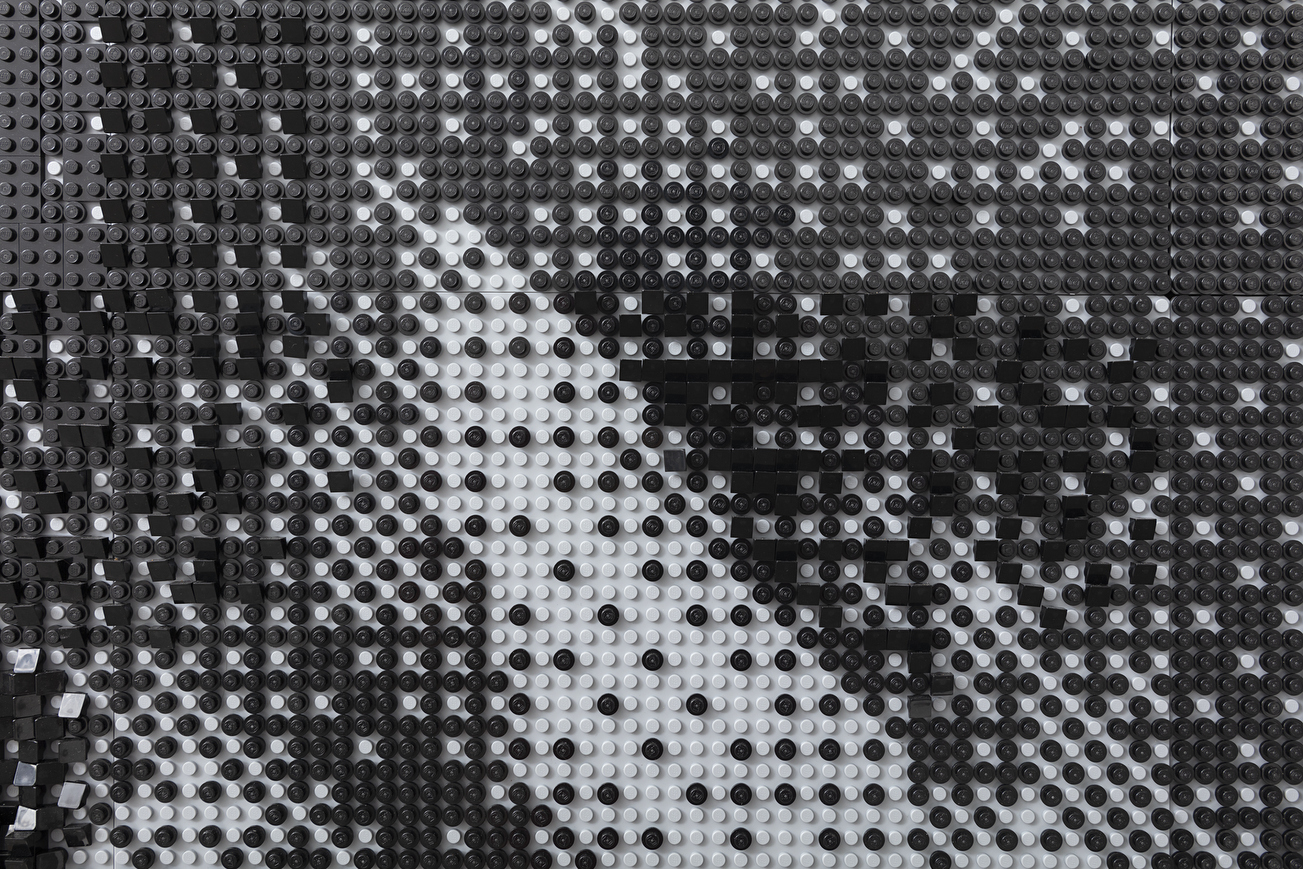

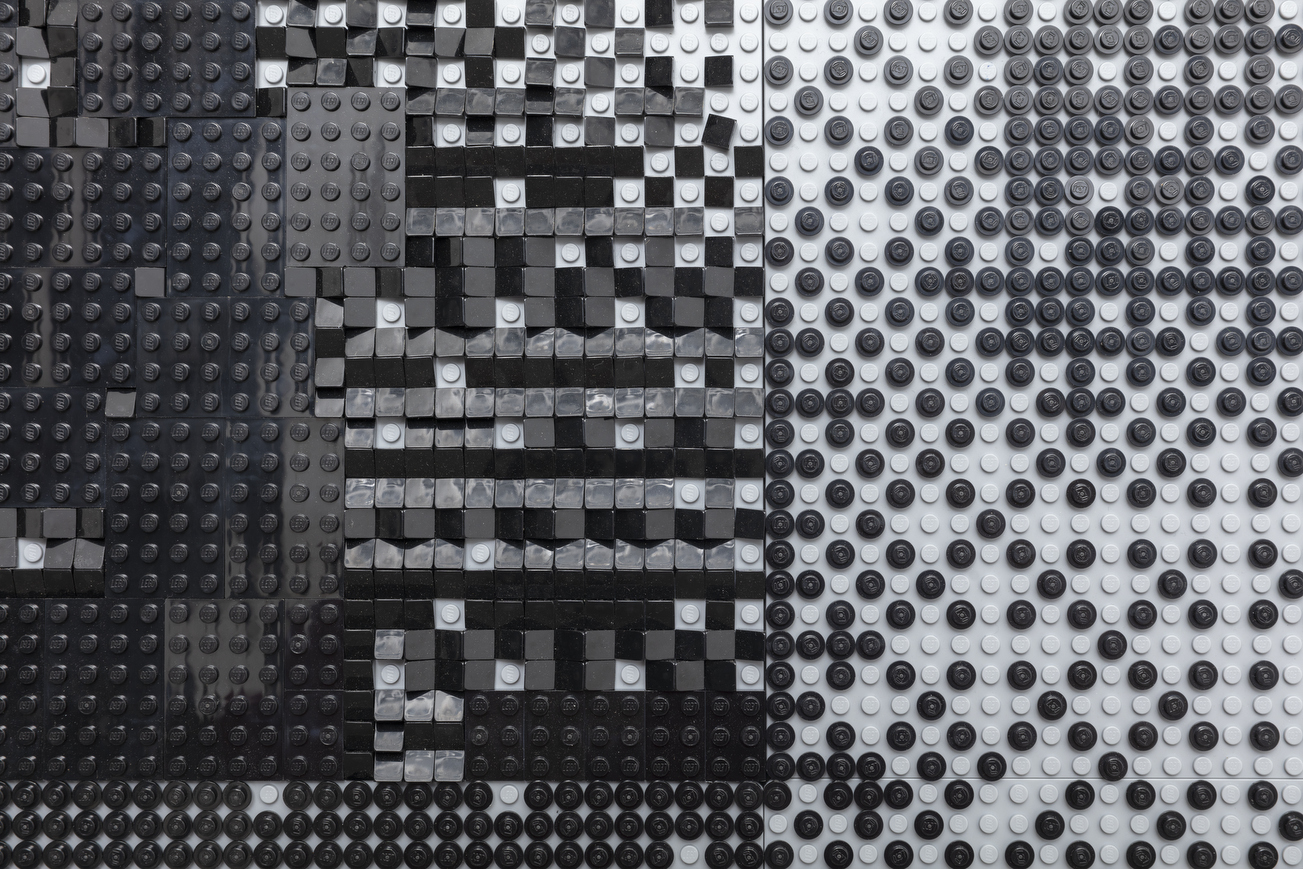
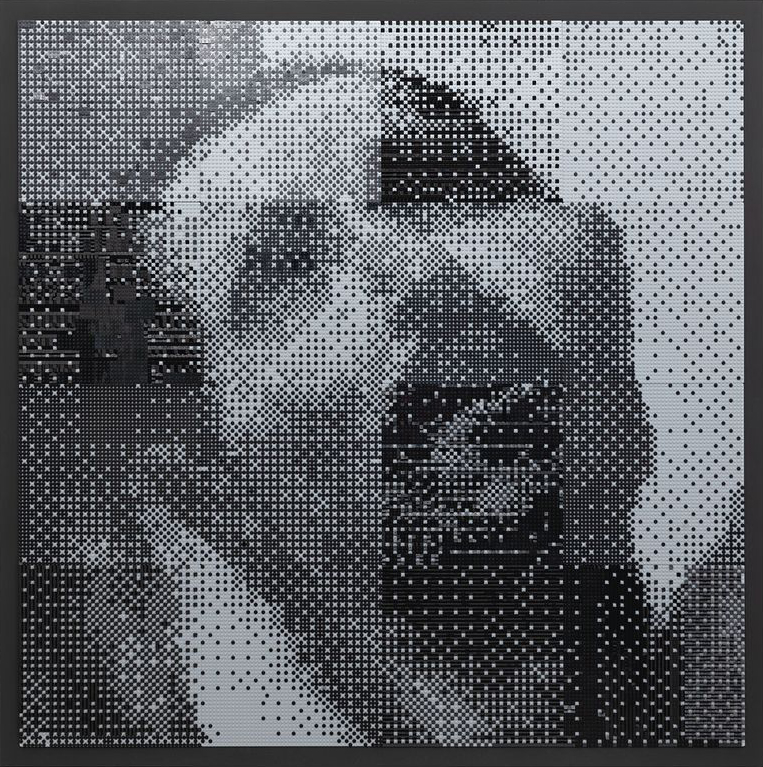
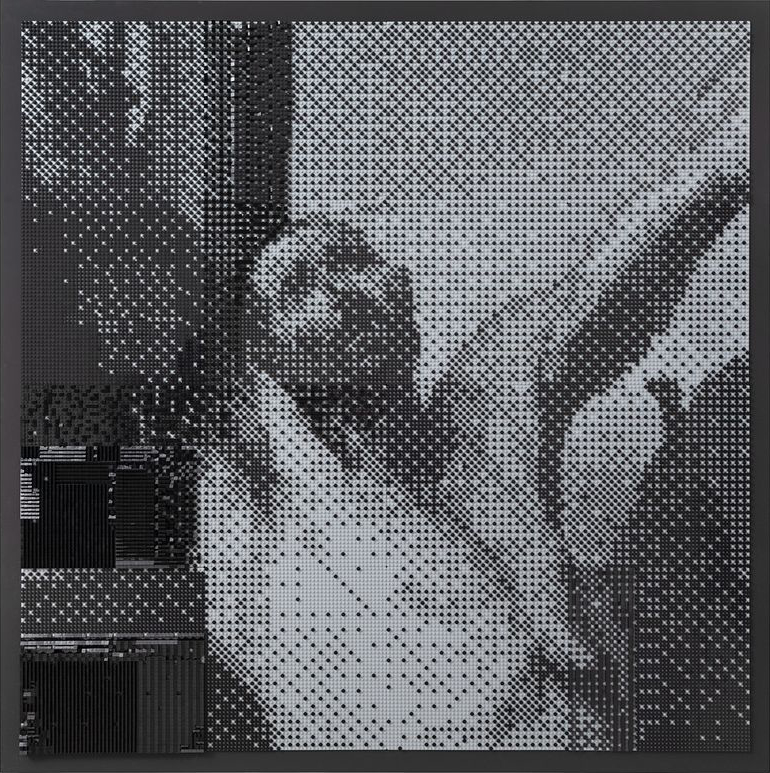
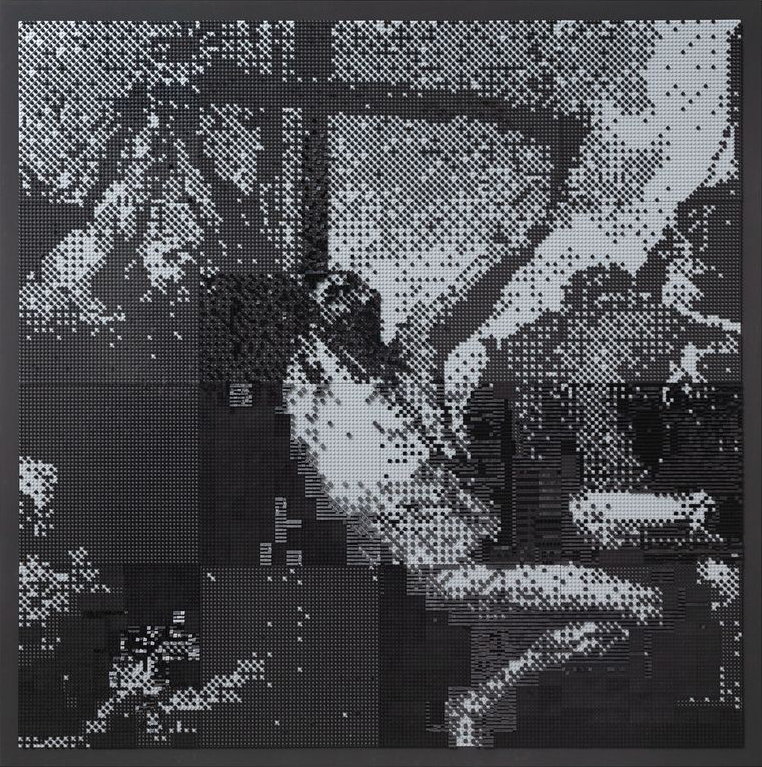


Martyrdom
Legos on wooden board
165 x 165 cm each panel
64,9 x 64,9 in each panel
BRIC Biennial
Brooklyn, NY, 2019
Legos on wooden board
165 x 165 cm each panel
64,9 x 64,9 in each panel
BRIC Biennial
Brooklyn, NY, 2019